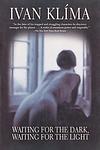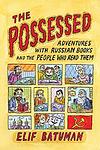The Greatest Czech, Turkish "Fiction" Books Since 1980
Click to learn how this list is calculated.
This list represents a comprehensive and trusted collection of the greatest books. Developed through a specialized algorithm, it brings together 300 'best of' book lists to form a definitive guide to the world's most acclaimed books. For those interested in how these books are chosen, additional details can be found on the rankings page.
Genres
Countries
Date Range
Reading Statistics
Click the button below to see how many of these books you've read!
Download
If you're interested in downloading this list as a CSV file for use in a spreadsheet application, you can easily do so by clicking the button below. Please note that to ensure a manageable file size and faster download, the CSV will include details for only the first 500 books.
Download-
1. The Unbearable Lightness of Being by Milan Kundera
Set against the backdrop of the Prague Spring period of Czechoslovak history, the novel explores the philosophical concept of Nietzsche's eternal return through the intertwined lives of four characters: a womanizing surgeon, his intellectual wife, his naïve mistress, and her stoic lover. The narrative delves into their personal struggles with lightness and heaviness, freedom and fate, love and betrayal, and the complexities of human relationships, all while offering a profound meditation on the nature of existence and the paradoxes of life.
-
2. My Name is Red by Orhan Pamuk
Set in the late 16th century Ottoman Empire, this novel explores the conflict between East and West, tradition and innovation, through the lens of miniaturist painters. When a renowned artist is murdered, his colleagues must solve the mystery while grappling with the changes in their art brought about by the western Renaissance. This complex narrative intertwines love, art, religion, and power, offering a deep exploration of the struggles between old and new.
-
3. Snow by Orhan Pamuk
Set in the small city of Kars in northeastern Turkey, the novel follows a Turkish poet who has spent several years in political exile in Germany. He returns to Turkey during a time of political unrest, with tensions high between religious and secular factions. As he becomes embroiled in the turmoil, he also becomes involved in a romantic relationship with a beautiful woman. The city is cut off from the rest of the world by a relentless snowstorm, leading to a series of tragic events. The novel is a contemplation on love, faith, and the tensions between tradition and modernity.
-
4. I Served The King Of England by Bohumil Hrabal
"I Served The King Of England" is a captivating novel that follows the life of a young Czech waiter named Ditie, who dreams of becoming a millionaire and serving the highest-ranking clientele. Set against the backdrop of World War II and the Communist regime, the story takes readers on a journey through Ditie's experiences in various hotels and restaurants, his encounters with eccentric characters, and his pursuit of love and success. With humor, wit, and a touch of satire, the book explores themes of ambition, identity, and the impact of historical events on an individual's life.
-
5. Life is a Carawanserai Has Two Doors I Went in One I Came out the Other by Emine Sevgi Özdamar
This novel follows the life of a young Turkish girl growing up in the 1950s and 60s, exploring her experiences in a rapidly changing society. The protagonist navigates the complexities of her family life, her struggle with her identity and her eventual emigration to Germany. The book explores themes of female empowerment, cultural clashes, and the immigrant experience, all told through a unique narrative style that blends reality with dreams and folktales.
-
6. Waiting for the Dark, Waiting for the Light by Ivan Klíma
The novel is set in the twilight of Communist rule in Czechoslovakia and follows the life of a television cameraman named Pavel. Despite his dreams of becoming a filmmaker and capturing the truth, he is trapped in a job that requires him to distort it. As the regime starts to crumble, Pavel grapples with the opportunities and challenges that freedom brings. He is forced to confront his past, his moral choices, and his dreams, leading to a deep exploration of the human condition and the struggle for personal and artistic freedom.
-
7. City, Sister, Silver by Jáchym Topol
This novel follows the journey of a young Czech man, Potok, as he navigates the tumultuous period of the Velvet Revolution and its aftermath. The story is filled with surreal and often disturbing imagery as it explores themes of chaos, transformation, and the struggle for identity in a rapidly changing world. Potok's adventures take him from the crumbling infrastructure of post-communist Czechoslovakia to the burgeoning world of Western Europe, and his experiences reflect the larger societal upheaval of the time.
-
8. Berji Kristin by Latife Tekin
The book is a poignant exploration of the lives of squatters in the outskirts of Istanbul during the 1970s and 1980s. Through a blend of magical realism and stark social commentary, it tells the story of a community of rural migrants who, in search of better prospects, build a shantytown named "Flower Hill" on the city's periphery. The narrative delves into the daily struggles, dreams, and communal bonds of these individuals as they grapple with the harsh realities of urban poverty, political upheaval, and rapid modernization that threaten to erase their makeshift neighborhood. The novel is a tapestry of interconnected tales that together paint a vivid portrait of resilience and survival amidst systemic marginalization.
-
9. The Black Book by Orhan Pamuk
The novel focuses on a man searching for his wife in Istanbul, who disappeared without a trace. In his search, he discovers a secret, surreal world in the city and starts to understand his wife's involvement in political activism. The narrative is interwoven with stories from a column written by his wife's half-brother, which the protagonist believes may hold clues to her disappearance. The book is a complex exploration of identity, storytelling, and the role of literature in society.
-
10. Identity: A Novel by Milan Kundera
"Identity: A Novel" is a philosophical exploration of the complexities of love, identity, and the human psyche. It revolves around the lives of two lovers, Chantal and Jean-Marc, who are living in Paris. As their relationship progresses, they grapple with existential questions, the nature of identity, and the fear of oblivion. The novel delves into their individual and shared insecurities, their perceptions of each other, and how these perceptions shape their identities. The narrative offers a profound reflection on the intricacies of human relationships, the concept of self, and the role of memory and imagination in identity formation.
-
11. The Forty Rules of Love by Elif Shafak
This novel intertwines two parallel narratives, one set in the 13th century and one in the modern day. The contemporary story follows a discontented American housewife who, while working as a reader for a literary agency, comes across a novel about the 13th-century poet Rumi and his spiritual mentor, Shams of Tabriz. As she delves into their story, she uncovers Shams' forty rules of love and begins to question her own life and relationships. The historical narrative, on the other hand, explores the transformative friendship between Rumi and Shams, and how their bond revolutionized Rumi's poetry and outlook on life.
-
12. The Museum Of Innocence by Orhan Pamuk
This novel delves into the obsessive love of Kemal, a wealthy Istanbulite, for Füsun, a distant relative and a shopgirl, which begins in 1975 and spans over 30 years. After a brief affair, Füsun marries another man, but Kemal's love remains unyielding. He starts collecting objects that remind him of his love for her, eventually creating a museum dedicated to their relationship. Set against the backdrop of Istanbul's changing society, the story explores themes of love, longing, class, and the power of memory, as Kemal's life becomes a testament to his unattainable desire, encapsulated within the walls of his museum.
-
13. Judge On Trial by Ivan Klima
"Judge on Trial" is a novel that delves into the life of Adam Kindl, a judge in Communist Czechoslovakia who is struggling with the moral dilemmas of his profession and personal life. As he presides over a politically charged case, Kindl grapples with the oppressive regime's influence on justice and his own sense of integrity. The narrative explores themes of power, corruption, and the quest for truth, while also examining the complexities of love, fidelity, and the human condition. Through Kindl's introspective journey, the novel provides a poignant critique of the judicial and political systems of the time.
-
14. The Possessed by Elif Batuman
"The Possessed" is a compelling narrative that combines memoir, criticism, and travel writing to explore the author's deep fascination with Russian literature. Through her experiences as a graduate student at Stanford, her travels to Turkey, Russia, and Uzbekistan, and her encounters with other scholars, the author delves into the works of great Russian authors such as Tolstoy, Dostoevsky, and Chekhov, while also reflecting on the nature of literature, identity, and the human condition.
-
15. Largo Desolato by Vaclav Havel
"Largo Desolato" is a play that delves into the psychological turmoil of a dissident intellectual living under an oppressive regime. The protagonist, who has gained notoriety for a political essay, faces the paralyzing fear of being constantly watched and the possibility of arrest. As various friends, admirers, and government officials visit him, he grapples with the moral and existential dilemma of whether to stand by his beliefs or succumb to the pressures of the authorities. The play explores themes of identity, responsibility, and the nature of freedom, capturing the protagonist's struggle with his conscience and the surreal experience of living in a society where personal integrity is under siege.
-
16. The Bastard of Istanbul by Elif Shafak
"The Bastard of Istanbul" is a novel that tells the story of two families, one Turkish and one Armenian American. It explores the deep, intricate history between the two nations through the eyes of the characters, while also tackling themes of identity, memory, and the past. The narrative unfolds through the perspectives of the women in both families, who carry the burden of their ancestors' secrets, and a young man haunted by the ghost of a long-dead Armenian. The novel delves into the complexities of love, family, and the lasting effects of the Armenian genocide on its descendants.
Reading Statistics
Click the button below to see how many of these books you've read!
Download
If you're interested in downloading this list as a CSV file for use in a spreadsheet application, you can easily do so by clicking the button below. Please note that to ensure a manageable file size and faster download, the CSV will include details for only the first 500 books.
Download













